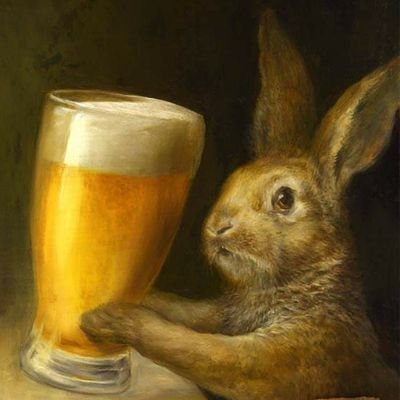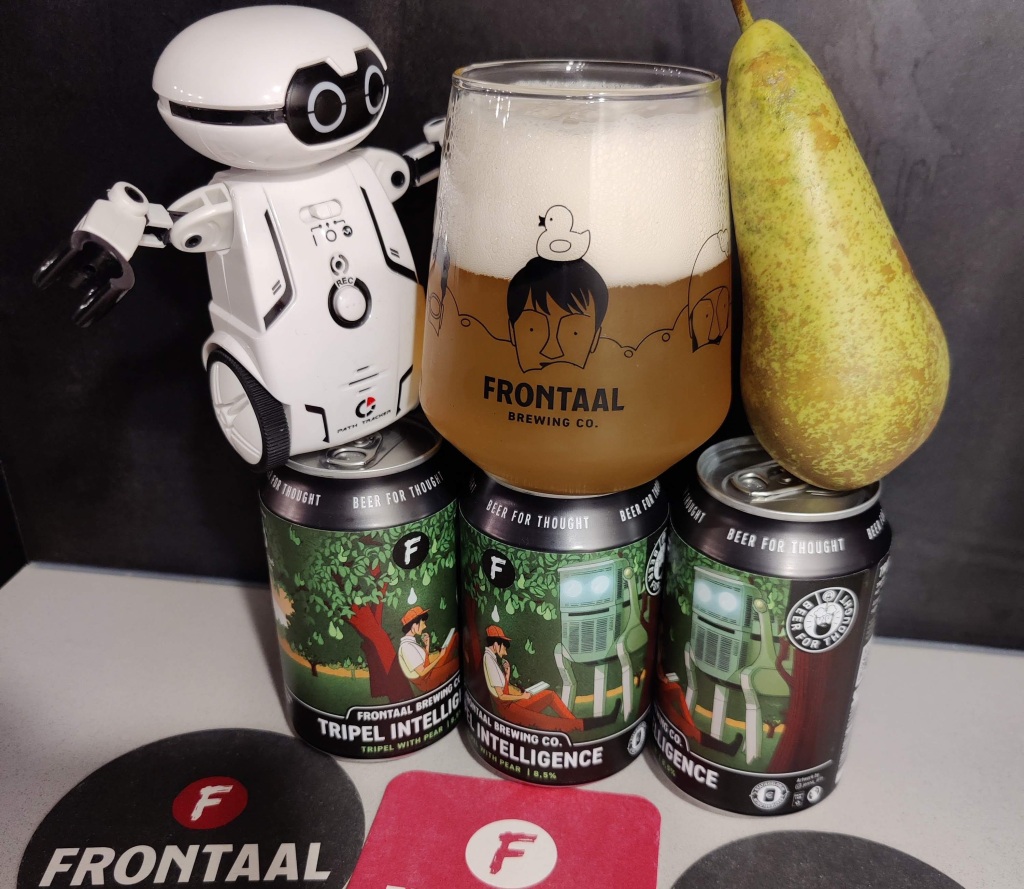Disclaimer: After a brief conversation (initiated by me) on LinkedIn, Frontaal shipped a box of this product, for which I promised to write a blog post in return. Neither Frontaal nor Handpicked Agencies had a role in the writing, hence all expressions and opinions presented are my own.
My everyday life is mainly occupied with three things: family, my job as a data science researcher and, not surprisingly, beer. Even though data science, artificial intelligence (AI), machine learning and the likes are all over the news and (social) media, I don’t often see it interfere with my other two pastimes. Until recently, when I came across a LinkedIn post by the well-known brewery Frontaal from Breda, the Netherlands. They supposedly had an AI develop the perfect recipe for them. Based on data. Even more so, they brewed it: Tripel Intelligence!



As you can imagine, my interest was spiked. My brains started spinning. The perfect recipe? Is there even something like that? Doesn’t everybody like a different beer? Isn’t that even dependent on your mood, the circumstances and the beer you had just before? So how did they define it here? And what data would an AI base itself on?
Untappd data
The post mentioned Untappd data. The data on the infamous beer rating platform is peculiar and with some experience, you get to understand how to read it. The rating is a funky convolution of the price of the beer (perhaps as a proxy for rarity?), the type of the beer (popular styles get rated higher), the alcohol percentage (higher abv typically means a higher rating) and the brewery (if they have more highly rated beers, the next one is likely to end up higher, too). Several more aspects are likely to play a role. At some point you know how to read it. A pilsner that gets a 3.7 (out of five) is outright amazing, while an imperial stout of the same rating is doing pretty badly. There’s a whole game in using Untappd, and I have previously written a blog post about it. It’s not great for brewers, and some are hit more than others. It is what it is, and the Handpicked Agencies, partners of Frontaal in this process, decided to use this as a source of wisdom.


So, surely their ideal recipe is a pitch black barrel aged imperial stout with a bunch of additives, including lactose? Or an exploded tropical fruit basket, popularly known as Hazy IPA? It is not! As the name suggests it’s a Tripel. A popular style, but not one of the highest ranked styles by a long run. I decided that I wanted to know more about their AI assisted recipe development process, so I contacted the marketeer who posted on LinkedIn. He put me in touch with the analyst who actually did the AI work and I asked him about every single detail I could think of.
Finding a beer to brew
Most of the development process turned out to be an interaction with ChatGPT, the so-called Large Language Model that keeps hitting the news on a weekly basis. ChatGPT cannot use Untappd data by itself, so some preparatory data analysis was carried out. Untappd allows to rank beers or styles, with filters for countries or other properties. As such, top ten lists of styles by volume (number of check-ins) and by rating were created for the Netherlands. Combining these, it turned out that a Tripel would be a good balance between good sales, and high appreciation by the drinker, or at least the Untappd-using sub-population.

Image credits: Frontaal
Coincidentally, just this year Frontaal won an amazing Gold Medal at the Dutch Beer Challenge. Being known as brewer that is fantastic at IPAs in all their incarnations, entering their Andreas was quite a leap for them. They didn’t expect much, and were hoping for some feedback that they could use to improve on their recipe. Well, feedback they got: keep the beer as it is, Andreas is a Golden Tripel! Let’s see if data and AI can improve on this!



The AI beer must really find an interesting, unexpected angle. The beer was to come out at the end of September or early October, so it makes sense to use seasonal products. In the Netherlands, that’s a typical period for fruit harvests. Untappd was able to show that fruity beers do well in this period, too, and a Tripel tends to be fairly fruity from itself, so why not? ChatGPT helped picking the right type of fruit. It knows what the main fruits in or just before the September harvest are: apples, pear and cherries. Time to just ask ChatGPT for some advice on the fruit to use and how to use it in the brewing process.
ChatGPT understands beer recipes
The AI came up with reasonable recipes for a Tripel with any of the fruits. So which one to pick? It even had a response to that! Using apples could be dangerous, as it knew that a typical fermentation problem can result in an off-flavor compound that many experienced tasters would recognize, which tastes a bit like (green) apple (also described as oxidized apple or acetic cider). Acetaldehyde is a sign of fermentation either stopped too early (it is formed en masse in early fermentation) or beer that had been sitting on the yeast for too long. Another reason could be excess amounts of oxygen, which can result in oxidation of ethanol back into acetaldehyde. Either way, using apples may give off the impression of fermentation problems, which is not the reputation a brewer wants to build.
Pear was next on the list and a very good suggestion, according to our machine-learning-based future overlords and it had some suggestions for the recipe, too. Use puree, and add it at the end of the boil, which is exactly what a sensible brewer would do.
I know a thing or two about these AIs and the term hallucination tends to come up regularly: the language models create perfect prose, the meaning of which is sometimes a bunch of idiocy in disguise. They make up stuff that just isn’t true. So I was curious to see what would happen if I asked for a Tripel recipe myself, with the added challenge of using fruit, sensibly. Here’s how that went:



Not bad. Perhaps even good enough to move on to mashing in right away. The amount of grains compared to the water seems a bit odd, but not totally crazy. It is good to see that the used grains, hops, yeast and fruit seem sensible and that the process is largely acceptable. The mashing scheme seems somewhat unconventional, but I would need to try to find out if this would work.
A fruity Tripel as a result: Tripel Intelligence
Frontaal started brewing the AI recipe right away, or so they told me. I have not seen that recipe, obviously, so I can only judge it by the result. I was in the lucky position to get a box of cans, with proper glassware, so I was all set to properly taste the product.
When I cracked open the can, it was clear that whatever the recipe was like, it did create a very Tripel-like aroma! A mix of phenols and esters, with lots of clove, banana and pear. The traditional Belgian addition of candy sugar had kicked fermentation into gears, as expected for the style. Plenty of complexity is the result, in both aroma and flavor. The pear, I would say, is not in the foreground. It is hiding behind some of the other fruity fermentation byproducts, but it certainly is present and even noticeable if you wouldn’t be looking for it on beforehand. The mouthfeel is soft, almost creamy, which is likely due to the added oats and wheat. Even though the carbonation is somewhat low, there is still plenty of persistent, bright white foam. The finish isn’t overly bitter, but pleasantly dry, which makes it all the more inviting for your next sip! All in all: great Tripel, close to the traditional style, but with an innovative twist that manifests itself in good dosage.
More work for the AI
Generative AI, which is the general term for AIs that create “new things” like text, images, sound, video etc. get ever better. They don’t only produce sensible text, even sensible recipes, but graphics are also in their realm. Frontaal works with the amazingly talented Jenna Arts for their can design. Working with the same designer all the time makes for a recognizable style, which is very valuable. The can art for Tripel Intelligence is also a collaboration with AI. The left part of the can, roughly up until the man’s knees are the work of their designer, while right of it, the label design is AI work. Not bad, right? Just like the beer, the label is a collaboration with AI. The work isn’t taken over from humans, but rather assisted by the AI. I like how the interaction between AI elements and Frontaal’s human experts probably resulted in an original recipe, a great beer and can art that would have likely been different, had just the human been in the loop.


AI won’t take over many jobs. Generative AI won’t take over many jobs. It might change the everyday reality of jobs, but especially for creative jobs, to which I count both brewer and can designer, the AI will be a cool assistant. Some”one” who can take over some of the boring repetitive stuff, and someone who can assist with original angles in the creative process. I bet, though, that the brewer actually looked at the recipe before blindly letting the kettles do whatever ChatGPT came up with, and rightly so.


Leave a comment